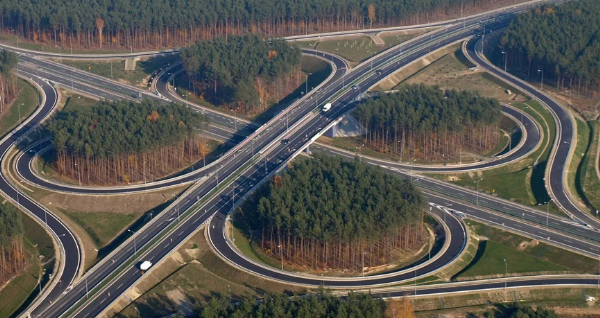Pune Ring Road project to be built in the city at Rs 26,000 cr; all you need to know-
The Ring Road will be a 173.7 km-long circular one, connecting 29 villages and all the peripheral highways in the city and would help in the reduction of pollution by 25%
Total Views |
- Kinjal Yogesh Dixit
The plan of constructing the Pune Ring Road was conceived back in 2007 in order to boost connectivity in the city and its suburban areas. The Maharashtra government had given its approval for Rs 26,831 crores for the 173-km-long Ring Road project.

Reportedly, the project is being executed in multiple phases. It will be a 173.7 km-long circular road connecting 29 villages and all the peripheral highways in the city. The proposed Ring Road would help in the reduction of pollution by 25%, and boost socio-economic development in the region. The project would improve road connectivity in Pune. For a while, the lack of funding had put the project on the back-burner.

Those travelling to Saswad, Nashik, Ahmednagar, Konkan and Mumbai pass through the city & hence cause traffic, air and noise pollution. Subsequently, the Ring Road would significantly reduce the travel time and distance. It will involve the acquisition of around 1554.64 hectares of land.
The state PWD (Public Works Department) issued a resolution for the approval of all the packages involved in the construction of the Outer Ring Road.
The first package of the mega-project comprises of construction of a 29.8-km stretch from Solu to Soratwardi on the Pune-Solapur Road. This package will cost Rs 3,523 crores. The second one will comprise of construction of a 36.73-km road from Soratwadi to Valve. The cost of the second package will be around Rs 4,495 crores. The third part of the Pune Ring Road project will consist of the construction of 38.34 kms from Urse to Solu on Aland-Markal Road. The fourth package will comprise of construction of 68.8 kms of road.
The road will connect six major highways passing through the city - Pune-Bengaluru Highway (NH-48), Pune-Nashik Highway (NH-60), Pune-Mumbai Highway (NH-48), Pune-Solapur Highway (NH-65), Pune-Ahmednagar Highway (NH-753F), Pune-Saswad-Palkhi Marg (NH-965).
The ring road will be used by an estimated 70,000 vehicles per day. As the entire road will be a toll-free one, it will help in reducing vehicular pollution. The entire project to have 14 multilevel interchanges, 47 minor bridges, 17 tunnels and four roads over bridges.
Close to 24% of the land has already been acquired for the first phase of the Ring Road, for which the total cost is Rs 518 crores. Rs 300 crores has been allotted by PMRDA. The total land required for the project, which will have 6 bridges, 8 flyovers, 3 road over-bridges and a 3.75-km tunnel road, is around 1,430 hectares.
Due to speedy urbanisation and the growth of the industrial sector, Pune faces severe pollution. This is due to the emissions from vehicles and the industries. The construction of the Pune Ring Road is expected to reduce pollution in major areas of the city, as it would reduce the concentration of vehicles there. The construction of the underpasses and bridges will be able to reduce the general air and noise pollution in Pune.